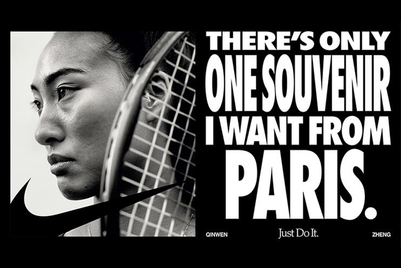_19.jpg&h=570&w=855&q=100&v=20250320&c=1)
We live in a globalised world – although it might not feel like it lately. With travelling across the world more or less a distant memory for many, live events seem tantalisingly unlikely. However, it seems the Tokyo Olympics is still set to go ahead in July 2021 – the 125th anniversary of the first Summer Olympics in 1896, and a huge brand platform for marketers looking to speak not only to the Japanese market but also other countries and cultures around the world.
So far, the road to Tokyo seems to be mired in controversy. Tokyo Olympics chief Yoshiro Mori has resigned following sexist comments that were labelled "absolutely inappropriate" by the IOC.
While older Japanese generations might align with Mori’s comments, there is a younger generation of women in Japan taking action. A Japanese female activist group collected more than 130,000 signatures to demand a heavier penalty for Mori and the prohibition of such gender-discriminatory comments in public.
As attitudes in Japanese society change, there are still challenges to navigate on top of the usual cultural differences that need to be considered when using the Olympics and Japanese culture to reach global consumers. Mori, a representative of the conservative old guard, may have blown it on the comms front, but brands do not want to suffer the same fate and be misunderstood by local audiences when executing global campaigns.
Brand winners and losers
Nike’s recent campaign "The future isn’t waiting" (pictured above) is an example of the tricky terrain brands can come up against. It featured three young students experiencing racial discrimination in Japan and received mixed reactions.
While the initial commentary online supported the concept of the campaign in a country where the focus on diversity and inclusion is minimal, those with more traditional anchored roots fought back as it unveiled complex historic and cultural references. A large part of the audience felt offended that such a sensitive topic was being brought to light, especially by a Western brand.
Furthermore, one of the actors was North Korean, which touched a deep political nerve running throughout Japan: there were multiple abductions of Japanese citizens from Japan by agents of the North Korean government during the years 1977 to 1983, so some felt that the ad overlooked an important historical context and dishonoured the memory of those lost to the kidnappings. With the best of intentions, a lack of cultural understanding will ultimately mean going two steps backwards rather than one step forward.
But we have also seen global sporting events used effectively by brands both wishing to resonate with the Japanese market and using it as a springboard to reach others.
Looking back at the 2019 Rugby World Cup, we saw Mastercard successfully tap into both the tech culture in Japan and fan cultures across the globe through its Player of the Match award. Alongside other digital activations, fan activity was monitored on social media and moments in the match that created the most noise, as per social listening, were lasered onto a trophy in real-time, creating the world’s first "live trophy" and increasing fan engagement with the brand.
The same year, O2’s "Be their armour" campaign had England players wearing traditional Samurai armour depicting the Red Rose of the RFU. To ensure it was being respectful of Japanese culture, the brand issued a proactive statement explaining it had worked alongside experts from the School of Oriental and African Studies in order to avoid any misrepresentation or stereotyping and had consulted with England coach Eddie Jones, who is half Japanese.
As for the upcoming Olympics, the campaign "500 days to go", which was sponsored by Heineken, Mastercard, Land Rover and DHL, was also launched to celebrate the lead-up to the Games, with many live events taking place across the country that incorporated elements of Japanese culture such as kusudamas – piñata-style origami balls that are used during Japanese celebrations.
So how can brands reap similar rewards?
Local, native experts that understand not just the local language but specific cultural values and references that might otherwise be missed will give brands invaluable insights and access to local platforms, data and resources.
Over the past few years, AI and technology have made a whole range of tools available to track behaviour for marketers but these address only the tip of the iceberg – without expert human curation, it is difficult to understand the data, why these trends are happening and how to capitalise on them.
Here, strategic planners, semioticians or anthropologists are critical to developing strategies in line with local needs and expectations. Of course, with the current uncertainty around these games going ahead, and the likelihood that, in the best-case scenario, physical attendance will be limited, brands should be applying this insight to digital and more specifically social.
Marketers, for the most part, understand more than ever that campaigns need to be culturally sensitive for the markets they appear in. However, what brands sometimes fail to remember is that cultures and cultural viewpoints aren’t static, they change and evolve constantly, as do societal norms and values. The cleverest marketers keep immersing themselves in the subtle nuances of culture that appear and adapt over time and make sure that their brand ecosystems shift in tandem. Practically, this means considering comms at a local level from the very inception of the campaign process, not just at the execution stage.
What the Olympics will look like in another 125 years’ time remains to be seen, but, for now, the smartest global campaigns will speak through Japanese culture to resonate within and beyond its borders.
Mélanie Chevalier is chief executive of cultural relevancy and branding firm Creative Culture


.jpg&h=334&w=500&q=100&v=20250320&c=1)
.jpg&h=334&w=500&q=100&v=20250320&c=1)

.jpg&h=334&w=500&q=100&v=20250320&c=1)
.png&h=334&w=500&q=100&v=20250320&c=1)
.png&h=334&w=500&q=100&v=20250320&c=1)











.png&h=268&w=401&q=100&v=20250320&c=1)